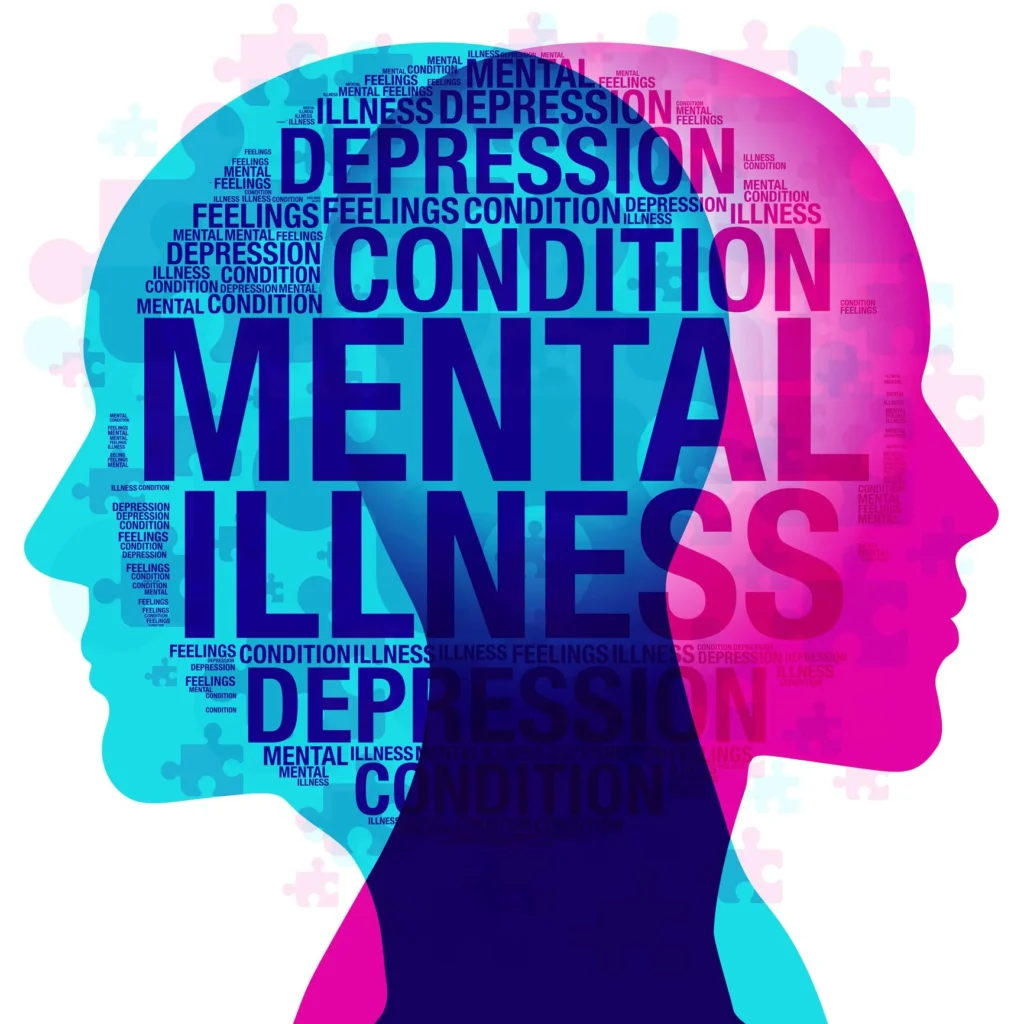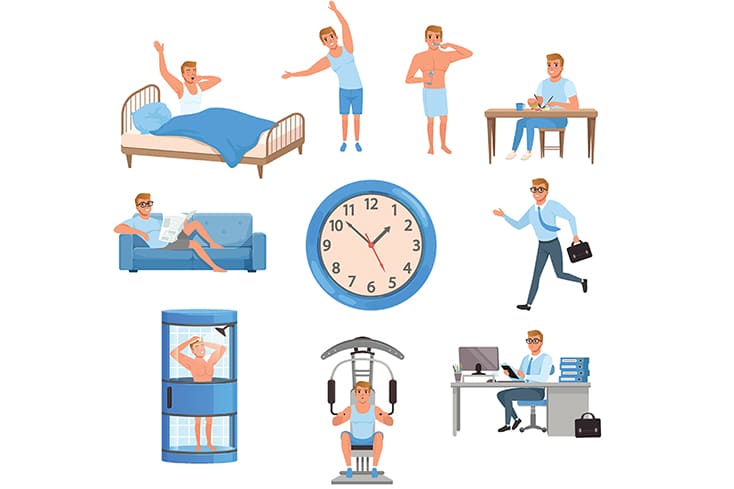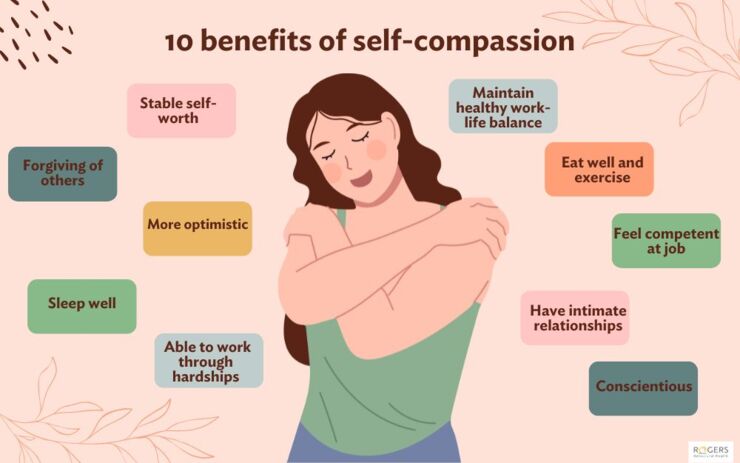In recent years, mental health has come to the forefront of public discourse. The stress of modern life, technological overload, and societal pressures have made maintaining mental health more challenging than ever. Mental health affects every part of our lives, from the way we think and feel to how we interact with others and handle daily stresses. It’s essential for overall well-being and directly impacts our ability to live a fulfilling life. While many people focus on physical health, mental health often gets neglected. However, by adopting certain practices and strategies, we can take better care of our minds. Let’s explore these methods and how they can lead to a more balanced and happy life
1. Understand What Mental Health Is

Before diving into how to maintain mental health, it’s important to understand what mental health truly is. Mental health encompasses our emotional, psychological, and social well-being. It determines how we handle stress, relate to others, and make decisions. Good mental health doesn’t mean being happy all the time or never experiencing challenges. It involves being able to navigate life’s ups and downs in a healthy way, bouncing back from setbacks, and maintaining a sense of purpose.
Just as physical health involves more than the absence of illness, mental health involves more than the absence of mental illness. It requires actively fostering positive mental habits, nurturing emotional intelligence, and taking steps to reduce stress. By understanding mental health as a dynamic and integral part of overall well-being, we can make it a priority in our lives.
2. Create A Routine and Stick To It

One of the keys to maintaining mental health is having structure and predictability in your daily life. A well-structured routine can reduce stress and provide a sense of control, especially when life feels overwhelming. Without a routine, it’s easy to become disorganized, which can lead to anxiety and depression. Establishing a routine that includes time for work, relaxation, exercise, and social interactions is an effective way to nurture mental well-being.
To create an effective routine, try the following tips:
- Start with the basics: Ensure that you get enough sleep, eat regular meals, and incorporate exercise into your day.
- Include time for self-care: Make time for activities that help you relax, like reading, meditating, or walking.
- Be consistent: Stick to your schedule as much as possible, but also allow flexibility for unforeseen circumstances.
- Limit screen time: Too much time spent on phones, computers, or social media can negatively affect mental health. Make sure to disconnect periodically and engage in offline activities.
3. Set Clear Reachable Goals

Setting and achieving goals can significantly improve your mental health. Goals give us something to work toward, provide a sense of purpose, and can boost self-esteem when accomplished. However, setting unrealistic goals can lead to frustration, stress, and burnout. Instead, focus on creating specific, achievable goals that are relevant to your life.
To set effective goals, consider these tips:
- Make them specific and measurable: Instead of vague goals like “be happier,” set concrete ones like “practice mindfulness for 10 minutes each day.”
- Break them down: Large goals can feel overwhelming, so break them down into smaller, more manageable tasks.
- Celebrate progress: Even small accomplishments should be recognized. This boosts motivation and fosters a positive mindset.
- Adjust when necessary: Life is unpredictable, and goals may need to change. Be flexible and adjust your expectations as needed.
4. Practice Mindfulness and Meditation

Mindfulness is the practice of being present and fully engaged in the current moment. It helps us become more aware of our thoughts and feelings without being overwhelmed by them. Meditation, often used as a tool for practicing mindfulness, has been shown to reduce anxiety, improve mood, and increase emotional resilience. Regular mindfulness practice can lead to a greater sense of peace, reduced stress, and an improved ability to handle difficult emotions.
Some ways to incorporate mindfulness into your daily routine include:
- Start small: You don’t need to meditate for hours. Start with five to ten minutes a day and gradually increase as you feel comfortable.
- Focus on your breath: One of the simplest mindfulness techniques is to focus on your breathing. Notice the sensation of each breath as it enters and leaves your body.
- Be non-judgmental: Mindfulness is about observing your thoughts and feelings without trying to change them. Accept what comes without judgment.
- Practice throughout the day: Mindfulness isn’t limited to meditation. You can practice it while eating, walking, or even during conversations by staying fully engaged in the present moment.
5. Building A Social Life

Human beings are inherently social creatures, and maintaining strong relationships is critical to mental well-being. Social support from friends, family, and community is one of the most significant factors in resilience and mental health. Engaging in healthy relationships provides emotional support, reduces feelings of loneliness, and can improve your sense of belonging and self-worth.
Here are some ways to build and maintain healthy relationships:
- Communicate openly: Honest and clear communication is the foundation of strong relationships.
- Be supportive: Offer support to others and be open to receiving help when needed.
- Engage in group activities: Whether it’s joining a club, attending a class, or volunteering, group activities help foster social connections.
- Reach out: If you’re feeling isolated or disconnected, take the first step in reaching out to others. A simple message or call can strengthen relationships.
6. Exercise and Physical Activities

Exercise is not just beneficial for physical health—it’s equally important for mental health. Regular physical activity can reduce symptoms of depression and anxiety, improve mood, and boost overall cognitive function. When you exercise, your body releases endorphins, which are chemicals that act as natural mood elevators. Exercise also promotes better sleep, reduces stress, and increases self-confidence.
- Start small: You don’t have to go to the gym for hours. Even a short daily walk can have mental health benefits.
- Make it a habit: Incorporate exercise into your routine so it becomes a regular part of your day.
- Mix it up: Vary your workouts to keep things interesting and challenge different parts of your body and mind.
7. Prioritize Sleep

Good sleep is essential for maintaining mental health. Sleep allows the brain to rest, recover, and process emotions. When we don’t get enough sleep, our cognitive function declines, and we’re more prone to irritability, anxiety, and depression. On the other hand, regular, restful sleep enhances emotional resilience, concentration, and decision-making abilities.
To prioritize good sleep hygiene:
- Stick to a schedule: Go to bed and wake up at the same time every day, even on weekends.
- Create a relaxing bedtime routine: Engage in calming activities, like reading or taking a bath, before bed.
- Limit screen time before bed: The blue light from phones and computers can interfere with your ability to fall asleep.
- Create a comfortable sleep environment: Ensure your bedroom is dark, quiet, and at a comfortable temperature for sleep.
8. Eat A Balanced Diet

What you eat has a direct impact on your brain function and mental health. A balanced diet rich in fruits, vegetables, whole grains, lean proteins, and healthy fats provides the nutrients your brain needs to function optimally. Studies have shown that diets high in processed foods, sugars, and unhealthy fats can contribute to mental health disorders such as depression and anxiety.
To maintain a brain-healthy diet:
- Eat a variety of nutrient-dense foods: Include fruits, vegetables, whole grains, and lean proteins in your meals.
- Limit processed foods and sugar: Avoid junk food, sugary snacks, and drinks that can lead to energy crashes and mood swings.
- Stay hydrated: Dehydration can negatively impact your mood and cognitive function.
- Consider brain-boosting foods: Omega-3 fatty acids, found in fish like salmon, walnuts, and flaxseeds, have been shown to improve brain health.
9. Seek Professional Help (only when needed)

While lifestyle changes and healthy habits are crucial for maintaining good mental health, there are times when professional help is necessary. If you’re feeling persistently overwhelmed, anxious, or depressed, it’s essential to seek help from a mental health professional. Therapists, counselors, and psychiatrists are trained to provide support and guidance tailored to your specific needs. Therapy can offer a safe space to talk about your emotions and develop coping strategies for managing stress and mental health challenges.
To seek professional help effectively:
- Research different types of therapy: Cognitive Behavioral Therapy (CBT), Dialectical Behavior Therapy (DBT), and talk therapy are just a few examples.
- Don’t wait until things get worse: Early intervention can prevent mental health issues from escalating.
- Be open to different approaches: Sometimes, medication or a combination of therapy and medication may be the most effective treatment.
10. Finding Balance and Compassion

Finally, maintaining good mental health involves finding balance and practicing self-compassion. Life can be stressful, and no one is perfect. It’s crucial to be kind to yourself, especially when you face challenges or make mistakes. Self-compassion involves treating yourself with the same kindness and understanding that you would offer a close friend. When you practice self-compassion, you’re better equipped to handle life’s stresses without being overly critical or judgmental.
To practice self-compassion:
- Speak kindly to yourself: Replace self-critical thoughts with encouraging and supportive words.
- Accept that setbacks are part of life: Everyone experiences difficulties, and it’s okay to struggle sometimes.
- Take time for self-care: Engage in activities that make you feel good, whether it’s taking a break, practicing a hobby, or spending time with loved ones.
Conclusion
Mental health is just as important as physical health, and it requires attention, care, and active management. By following simple strategies





This is a great reminder of the importance of mental health. Thanks for sharing these valuable insights!